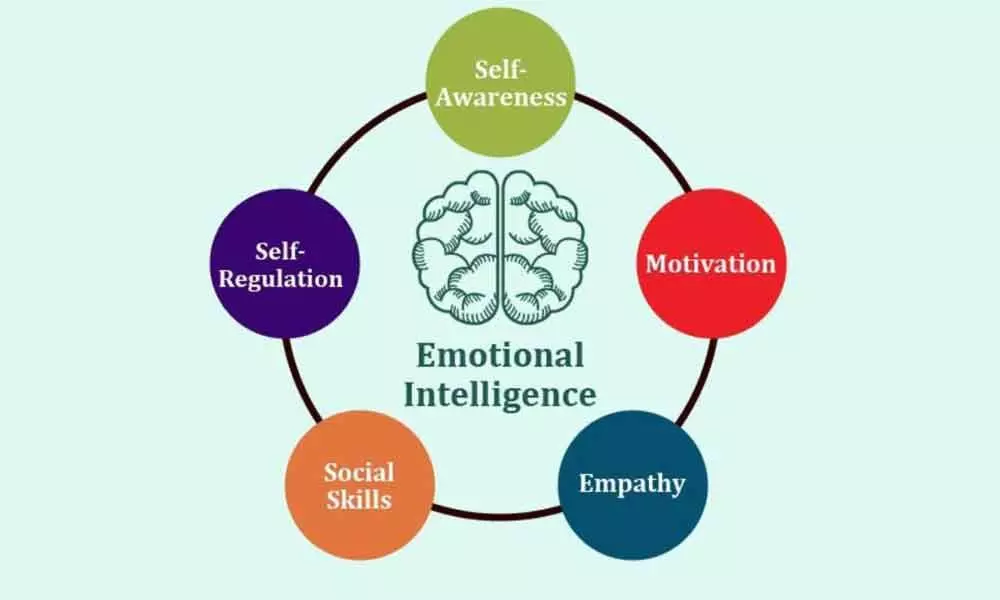Emotional Intelligence, commonly referred to as EQ, is the ability to recognize, understand, and manage your own emotions, as well as the emotions of others. It is a crucial skill for personal growth as it enables you to form positive relationships, make sound decisions, and effectively manage stress and conflicts. In this blog post, we will explore the importance of emotional intelligence in personal growth and provide actionable tips on how you can develop your EQ.
Why Emotional Intelligence Matters for Growth
- Self-Awareness
Self-awareness is the foundation of emotional intelligence. It is the ability to recognize and understand your own emotions, thoughts, and behaviors. Self-awareness enables you to identify your strengths and weaknesses, values, and beliefs, and recognize your triggers and patterns of behavior. It also allows you to make conscious decisions, take responsibility for your actions, and learn from your mistakes. When you are self-aware, you are better equipped to manage your emotions, control your behavior, and respond effectively to challenging situations.
- Self-Regulation
Self-regulation is the ability to manage your emotions and behavior in a constructive manner. It involves controlling your impulses, managing your stress, and staying calm under pressure. When you have self-regulation, you can effectively manage your emotions, stay focused on your goals, and make rational decisions. This skill is essential for personal growth as it enables you to stay on track, overcome obstacles, and achieve your goals.
- Empathy
Empathy is the ability to understand and share the emotions of others. It enables you to connect with others, build strong relationships, and effectively communicate. When you have empathy, you can understand the perspectives and feelings of others, and use this knowledge to work collaboratively and resolve conflicts. This skill is particularly important for personal growth as it enables you to form positive relationships and build a support system that can help you achieve your goals.
- Motivation
Motivation is the drive to achieve your goals and aspirations. It is the fuel that keeps you moving forward, even when faced with challenges or setbacks. When you have motivation, you are more likely to persevere in the face of adversity, take risks, and pursue your dreams. Emotional intelligence can help you to identify your passions, values, and beliefs, and align them with your goals. This can help you to find purpose and meaning in your life and stay motivated even when faced with challenges.
How to Develop Emotional Intelligence for Growth
- Practice Self-Awareness
Developing self-awareness is the first step to developing emotional intelligence. To practice self-awareness, take time to reflect on your emotions, thoughts, and feelings. Write in a journal, meditate, or talk to a trusted friend or therapist to gain insight into your own emotions and behavior patterns. Identify your strengths and weaknesses, and work on improving areas that need attention.
- Manage Stress
Stress can interfere with your ability to think clearly and make rational decisions. To develop self-regulation, it’s important to learn how to manage stress and anxiety. Try relaxation techniques such as deep breathing, meditation, or yoga to calm your mind and body. Exercise regularly, get enough sleep, and eat a healthy diet to maintain your physical and mental health.
- Practice Empathy
Empathy is a skill that can be developed through practice. To develop empathy, try to put yourself in other people’s shoes and understand their perspectives. Listen actively, ask questions, and try to see things from their point of view. This can help you to build strong relationships, resolve conflicts, and communicate more effectively.
- Set Goals: Setting goals is an essential part of personal growth. It helps you to stay motivated and focused on your aspirations. To develop motivation, set clear and achievable goals that align with your values and passions. Break down your goals into smaller, manageable steps, and celebrate your progress along the way. This can help you to stay motivated and committed to achieving your goals.
- Conclusion: Emotional intelligence is a key factor in personal growth. It enables you to develop self-awareness, self-regulation, empathy, and motivation, all of which are essential for achieving your goals and living a fulfilling life. By practicing self-awareness, managing stress, practicing empathy, and setting goals, you can develop your emotional intelligence and become more effective in all areas of your life. Remember that emotional intelligence is a skill that can be developed through practice, so be patient and persistent in your efforts. With time and dedication, you can become more emotionally intelligent and achieve greater personal growth.













